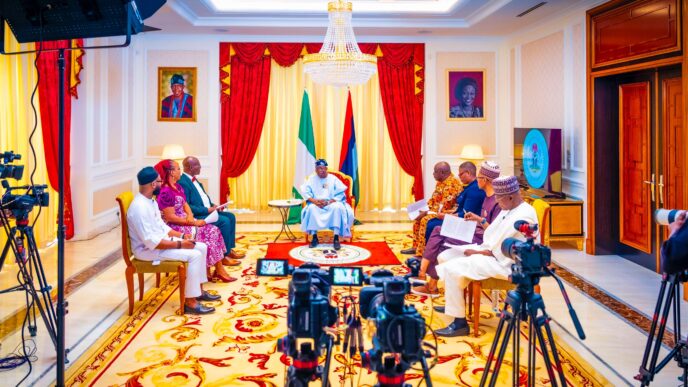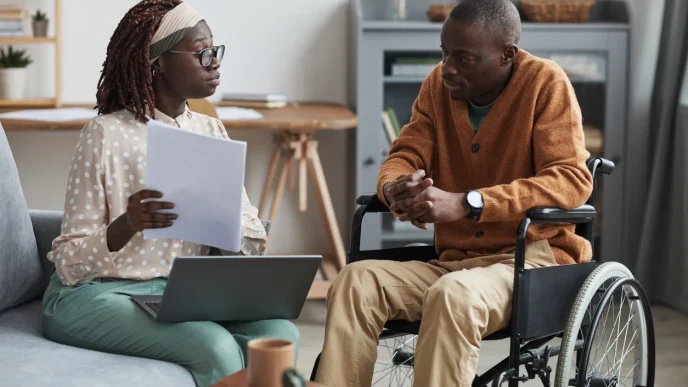This subject has been on my mind forever and I have been letting out some of my concerns over the years and in different writeups. However, the confluence of recent events has culminated in this article. You see, we all can complain about where Nigeria is today, and it is usually easier when one criticises from the sidelines.
For me, I have now tried both sides, and while I see that there are many low-hanging fruits to be plucked in the business of improving our dear country, I also see clearly that things are not as easy to change as we often imagine from the other side. And more than ever before, I see an increasing level of conscientiousness and frugality in government. This may be due to a build-up of decades of experience, and citizen activism. I would rather bank the gains that I see, rather than seek to find a perfect system – which does not exist anywhere.
This article becomes imperative for four reasons. Firstly, the japa phenomenon – whereby many young and not-so-young Nigerians (especially those trained on the cheap in Nigerian universities) – leave the country in hordes, to earn better in mostly Western nations. Medical doctors and nurses – most of whom are trained in Nigerian public universities where they sometimes pay less than $200 yearly – are now in these foreign countries earning good money after a bit of top-up training. And some are doing incredibly well, winning awards and adding to bodies of knowledge. So also, are Nigerians in other professions?
It is even impossible to suggest that they don’t go abroad because their one-month salary (converted directly to the naira), could pay the yearly salaries of several of their mates that have remained in Nigeria. But that is not the whole story. The concept of purchasing power parity (PPP) means that a direct conversion makes little sense, as $1 in the US will control $10 value in Nigeria. So, we cannot validly argue that Nigeria is a bad place just because our currency is much weaker compared to that of the US. In fact, the weaker our currency is compared with the US Dollar, the higher the likelihood that we will be forced to look inward and also export more. This needs to be well-managed, though.
Advertisement
The other issues that concern me and warrant the writing of this article are that these young folks I mention leave the country in anger, and most remain angry with Nigeria, believing that they have been let down. Many have had the bad experience of joblessness here. Many have suffered different kinds of trauma. But it’s still heartbreaking that many or most do not think about what they have benefited from being Nigerians – even if it was only the cheap education. I think it’s because they don’t understand the process by which socioeconomic development comes to a nation.
I try to look through people’s eyes and contextualize their experiences. We are all greatly influenced by the images beamed into our minds on a minutely basis, and in today’s tech-driven world, there are gigabytes of well-choreographed information that we absorb every day which gives us illusions about reality. Nigeria also suffers specially from our inability to ward off the toga of a bad image, and our predilection to somehow believe the worst about ourselves. Many of what we say and believe about ourselves are statistically untrue.
For example, more kidnappings happen in South Africa. More carjackings happen there too. More car thefts now happen in Canada. More knife crimes and phone snatching happen in the UK. More pickpocketing happens in tourist centres like Paris, Rome, New York or London. More gun crimes happen in the US. More outright corruption goes on in India and even China. More disguised corruption is perpetrated by the world’s most powerful countries. More cybercrimes happen in and from Eastern Europe and even countries like the UK, France and the US. But we foolishly carry the can for everything bad.
Advertisement
And this is why we are still discussing the acerbic, misguided and hurtful words of one of Nigeria’s exports to the world – Mrs Badenoch – who epitomizes the lost mind of the average young Nigerian that needs to be retrieved immediately. Sad enough, those most afflicted by this destructive anger – to the point of swearing off their country – are the privileged ones.
The last concern is the separatism ideology that ails parts of our land and peoples. There is a long story here but suffice to say that it goes back to the relative ease with which we obtained independence and shortly after, the demise of our parliamentary system of government. The first coup led to another coup. Both were bloody, and naturally, this led to so much animosity and a civil war ensued, with great cost in human lives. The embers of the civil war remain and this may be because we haven’t properly treated the post-trauma syndrome disorder.
Today, separatism has grown and flared up in different parts of Nigeria. As it pertains to the economy, this phenomenon means that we are often unable to pull together for development. In fact, we seem stuck in a scenario where the regression of Nigeria as an entity is a thing of joy to some constituent parts, and often, ethnic nationalities will only support Nigeria’s progress is their kinsman is leading. This is bizarre. But it is also a good reason for this article. We must continue to cultivate the support and emotions of our people.
Below are some of what Nigerians need to understand about the process of attaining socio-economic development:
Advertisement
TIME IS OFTEN A FACTOR
Whereas we can point to a few countries that have attained development faster than we can imagine, but time still remains a factor. Nigeria gained independence in 1960. It is a gross error for us to compare our state of development with very developed nations. The fact is that all of those countries went through worse problems than us.
They have seen violence, wars, famines, plagues, corruption, waste, brigandage, and some of the worst types of barbarism that we could never descend to. Whereas this is not an attempt at justifying mediocrity, we should ensure that criticisms are not too acerbic and negatively sustained such as to deny us of what we purport to be looking for – development.
For example, putting out wrong information on Nigeria and damaging her image consistently shoos away those tourists and investors that should come and help our cause. We can play politics but a line must be drawn at some point. Because even though it’s good to be in a hurry to achieve, but it’s sheer ignorance and arrogance to compare Nigeria line by line with the countries that colonized us, and that sit on top of the world’s economy. I have always believed that humility will be a factor for us to achieve development. We cannot go around behaving like we know it all or seeking to portray other people as our footstool.
Advertisement
DEVELOPMENT TAKES GREAT SACRIFICE BY THE MAJORITY
Admittedly, not all of us will cooperate and sacrifice anything for the collective. But we must attain the knowledge and mindset of doing more for our motherland than what we expect from her. The sacrifice should also not be expected only from political leaders even though they bear a great responsibility. For instance, Nigerians simply do not like to pay their fair share of taxes and government revenue. That is why even though Kenya and South Africa have barely 60 million people in population, the personal income taxes collected in those countries are an equivalent of 4 and 15 times what we collect in Nigeria. There is money in Nigeria – that is why our GDP is way up there – but we have simply refused in general to contribute to the progress of the collective. The problem is that in our religions, music, movies and other cultural platforms, we emphasise ‘enjoyment’, soft-work or no work at all, we emphasise how we are a chosen people with no excuse for failure. Good. But the realities of this world point to a different outcome. To develop, the focus must be on hard work and sacrifice, for now.
Advertisement
MANY REALLY HARD LESSONS ARE LEARNT
Development often requires the learning of very hard and costly lessons. Most developed nations have gone through the worst of experiences that we should not wish for. Famines. Plagues. Wars. Diseases. What-have-you. These experiences probably made them hardened and innovative. We should not expect to waltz into development. The period of development is usually a painful period, not a period where we eat, waste and throw in the trashcan. It is not a period you combine with fanfares and owambes.
Advertisement
Nigerians often ask for abundance. Our mentality has to be worked upon. Abundance should be a goal for the future, not immediate. It should come after the collective sacrifice and we all must learn to live simply. I however acknowledge that examples must be shown by politicians and government appointees for the people to sacrifice more. The Argentinian experience comes to mind.
That country is where it is today because they sought to make life too relaxed for all citizens at the turn of the last century (post First World War). The world’s economy was largely agrarian, and they thought since they sat pretty at that time, every Argentinian should enjoy. This made the country complacent and unable to catch on to the technological advances that defined the ensuing period. That’s why they have stress today. We must learn. There is a time to sow and toil, and this is that time. If we understand what some countries did to really emerge, we will shudder.
Advertisement
NO ONE HAS IT ALL
At the end of the day, in the game of development, we must remind ourselves that nobody has it all. Some powerful nations have managed to master the art of putting their best feet forward, showing the best parts of their existence through well-controlled media. For the rest, there is no control and only the filthiest is shown. In this way, many young people from developing nations believe literally that money could be picked from the ground in developed nations.
They sing unpaid praises of these developed nations. They are however often shocked upon migration when they find that there are even more serious challenges in those countries than where they left. Every nation is battling its own challenges. That is why governments have remained in fashion and every country has retained one. So, let’s always be honest in our judgment of Nigeria.
NIGERIA HAS ACHIEVED A LOT ALREADY
Flying into Abuja this afternoon, as the plane hovered above what must be parts of Kubwa and Karsana, I was awed as usual by the number of well-planned estates in Abuja. No one should see that and say Nigeria has not evolved. We are certainly not where we were years back. The use of extremities on Nigeria as the worst country that there is, or a dying country or any such improprieties, is certainly uncalled for. Nigeria has a lot going for it and is our natural habitat. If we desert Nigeria, wiser people will take over.
As development indices go, Nigeria has done well in some aspects. We have built infrastructure though with still a long way to go. We have educated a good majority of our people. With recent hard reforms, we will now concentrate on ensuring the money moves around and prosperity spreads in Naira. The focus has been taken off the US Dollar. This is the promise of Mr President Bola Tinubu.
UNITY AND SELF-FORGIVENESS ARE IMPORTANT
The history of economic development has shown that self-forgiveness is important. If a country dwells too much on infractions of the past from one constituent group to another, such a country will never move forward as members of one or more groups at every point in time will work actively to pull back the rest in retaliation for past ills.
Now, we cannot get everyone on the same page and there will be outliers who could never be convinced to see the big vision, but corporate self-forgiveness is important, and divisive rhetoric must be banished. Most if not all countries that have forged ahead have shown considerable unity and squeeze out most of their centrifugal demons.
NO NATION WITH 20% EXTREMELY RICH PEOPLE
When we look critically at the most admired nations of the world, we find that indeed inequality is a constant. Most of them have less than 10% of people who could be considered financially secure – or rich. In Nigeria, we are aspirational, and everybody wishes to be rich. This will not happen. Abroad, most people have probably come to terms with the mediocre way of life where they struggle with bills and mortgages and credit card payments. This is a critical concern.
We must understand exactly what we want. As things stand, our system where assets are wholly owned by citizens and no one is pressured to borrow in order to get a better job or live in a safe place, seems to be better even if we will have to give up on this system in a matter of time.
UNDERDEVELOPMENT IS AN OPPORTUNITY
The state of underdevelopment that we find ourselves should be considered an opportunity for value addition. Whereas there are aspects of underdevelopment that could only be attended to by governments, but the absence of many amenities that we see abroad is also an indication that someone needs to provide them here. Nigeria and many African nations are still at that stage where names are made exactly for turning around mediocre situations.
Many citizens of developed nations, who understand the history and process of development, wish they were Nigerians or Africans today, as they see opportunities for making fortunes and a name for themselves.
WE ARE NATURALLY LUCKY IN NIGERIA
Our weather is great. And so is our land. A geographic or agricultural map of Nigeria will show that most of our land – 95% – is green and arable. Most nations cannot boast of the kind of positive diversity we have in our country across resources. We may even explain away our underdevelopment as a factor of the ease with which it is easy to live in Nigeria – and has been over time.
YOU DON’T BUILD ONLY TO SCATTER. AND DON’T LET ANYONE KEEP SCATTERING YOUR WORK
Perhaps the reason why not so many countries could be considered to have turned their own fortunes around in the last 100 years is because it has now become extremely difficult for countries to emerge in the face of pushback. The African Union recently did a report that showed that African countries lose $4.5 billion of their hard-earned finances to bad news coverage yearly. When many developed countries developed, we had no social media or intense news focus, and it could be said that espionage was still quite rudimentary.
Today, centuries of knowledge and expertise among major countries mean that African countries could as well be flailing about thinking they are making progress because of the solid gap that has now emerged between developed and underdeveloped countries. This is probably the reason why terms such as Economic Depression disappeared from the economic lexicon (no self-respecting nation will admit such anymore after the 1930s).
It is also probably the reason why most developing countries have only seen a revolving door of donor agencies and ‘development partners’ coming and going, constantly postulating and lending, for the past 100 years. In that time, some countries like India, China, and Brazil have made some real progress with others being very small ones – and this is in spite of the battery of development partners and their advice.
This being the case, any real strides forward for a country like Nigeria must be deliberate, measured, choreographed, and protected from agents who are wired to dissemble and distract from the objective. These agents are many today. The phenomenon has become intractable.
Views expressed by contributors are strictly personal and not of TheCable.
Add a comment










